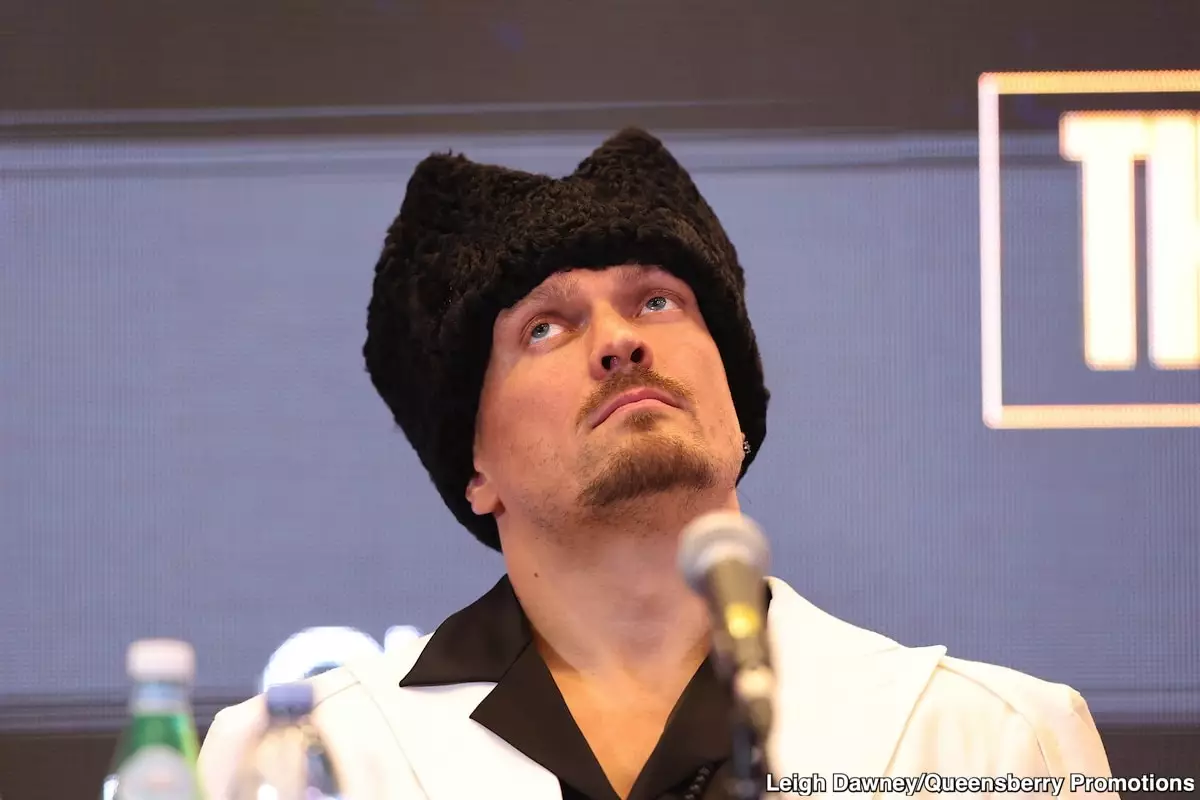In the contemporary boxing landscape, few figures wield as much influence with their words as Tyson Fury. His recent proclamations about Moses Itauma, heralding him as the imminent destroyer of the heavyweight division, exemplify the dangerous allure of hype. While Fior’s enthusiasm may seem inspiring, it often oversimplifies the complex hierarchy and skill dynamics that define the sport. Overhyping young fighters risks setting unrealistic expectations, leading to inevitable disillusionment when reality catches up. Fury’s tendency to declare youth as inherently superior not only dismisses the maturity and experience often crucial at this level but also contributes to a culture of undue pressure on young athletes.
Misjudging Experience and Craftsmanship
Fury’s comparison of opponents like Oleksandr Usyk with fighters he considers “spent forces” reveals a fundamental misunderstanding of what longevity, skill, and intelligence mean in boxing. Usyk isn’t a faded star clinging to past glories but an exceptional tactician who has continually evolved, outsmarted, and outboxed his opponents. His footwork, ring IQ, and adaptability distinguish him as a true master, not a mere survivor. Underestimating such a competitor demonstrates a superficial view of boxing that values raw power and youth above strategic mastery. The division’s current landscape suggests that experience and cerebral fighting are often what separate champions from contenders, a reality Fury seems oblivious to when he dismisses opponents based purely on age.
The Illusion of Invincibility and Youth’s Short-lived Fame
Young fighters like Moses Itauma represent the future, but hero-worship and premature adulation contribute to a distorted outlook that ignores the brutal lessons of the sport. Recalling Fury’s past endorsements of fighters like Jared Anderson and their subsequent failures only underscores how fleeting such hype can be when not rooted in tangible achievement. The boxing ring is unforgiving; it strips away illusions of invincibility and destroys arrogance that’s built on superficial talent. History proves that a fighter’s true potential is only realized through perseverance, resilience, and a willingness to learn—traits that take years to cultivate. Putting too much stock in “the next big thing” risks undervaluing these essential qualities while setting athletes up for heartbreak.
The Reality of the Heavyweight Elite
In the current heavyweight division, the competition isn’t about who’s the youngest or most hyped but about who can adapt, strategize, and endure. Oleksandr Usyk embodies this resilience, having dismantled giants with his intelligence and agility. Comparing him to Luis Ortiz—or any aging contender—misses the mark entirely. Ortiz is a skilled veteran, yes, but his style and durability have waned. Usyk, on the other hand, remains relevant because he embodies the fight’s essence—craftsmanship, speed, and intelligence. The notion that Itauma could leapfrog seasoned champions like Usyk or even unseat Fury in their primes is pure fantasy. Youth is fleeting, but craft endures.
Dangerous Prophecies and the Burden of Expectations
When Tyson Fury proclaims that Moses Itauma is “the future,” he inadvertently stakes a premature claim on a destiny still unearned. History is littered with fighters whose careers were prematurely elevated only to crash under the weight of unrealistic expectations. By declaring Itauma the future now, Fury risks creating a pressure-cooker environment that could derail the young fighter’s development. Additionally, such sweeping predictions sensationalize the division, causing fans and aspiring fighters to overlook the importance of patience, experience, and deliberate growth. The heavyweight division historically rewards perseverance over hype, and anyone who claims otherwise risks being humbled by reality.
The Cautionary Lesson for Boxing Fans
Boxing is a sport of patience, strategy, and resilience. No matter how talented a young prospect appears, they must navigate the treacherous waters of the division—facing seasoned veterans, adapting to criticism, and enduring the physical toll of the sport. In this context, Fury’s loud proclamations resemble a fuse that could eventually ignite unrealistic ambitions, setting up young fighters for sudden disappointment. Genuine greatness isn’t born from bravado but from consistent effort, learning from setbacks, and respecting the craft’s deep-rooted complexities. Fans should approach such hyperbolic claims with skepticism, recognizing that the true champions are those who win with skill, not just youthful bravado.
In a division as volatile and competitive as heavyweight boxing, the biggest mistake one can make is to fall prey to illusions of youth and invincibility. True greatness demands humility, patience, and a relentless pursuit of excellence—qualities that transcend age and hype.

